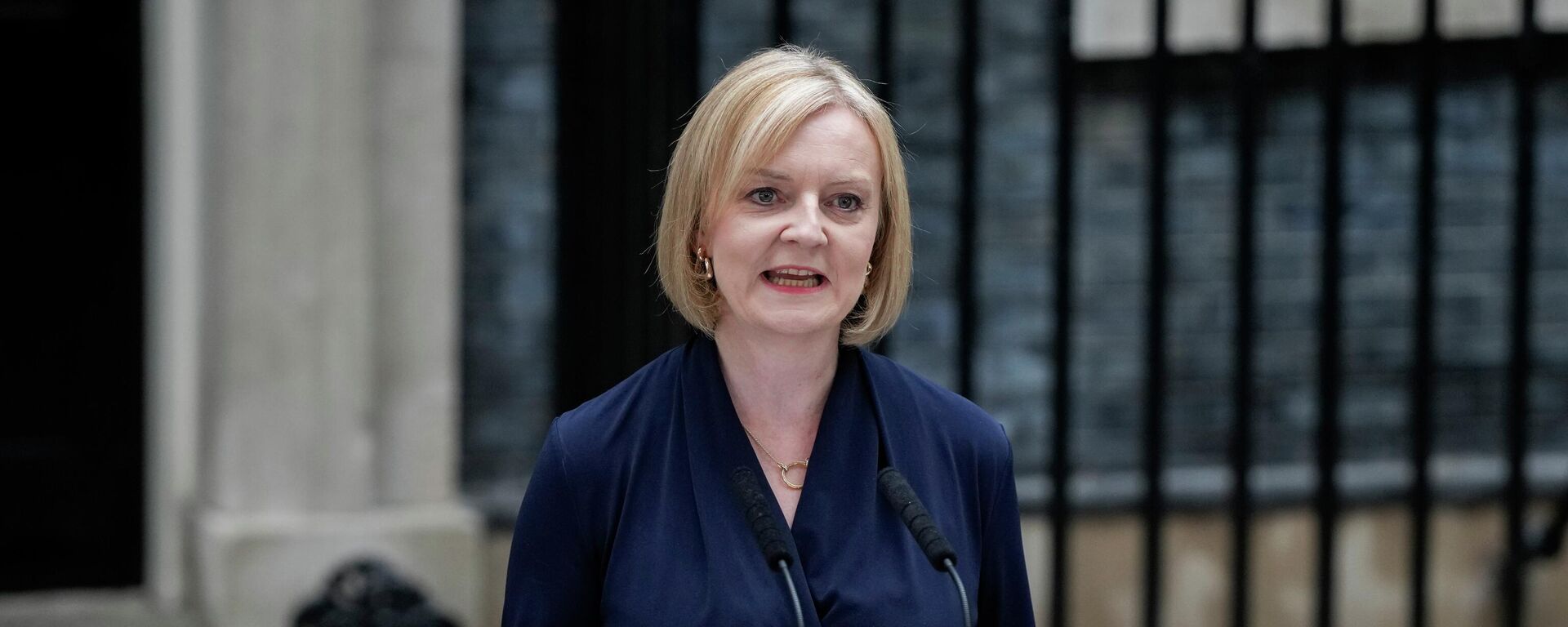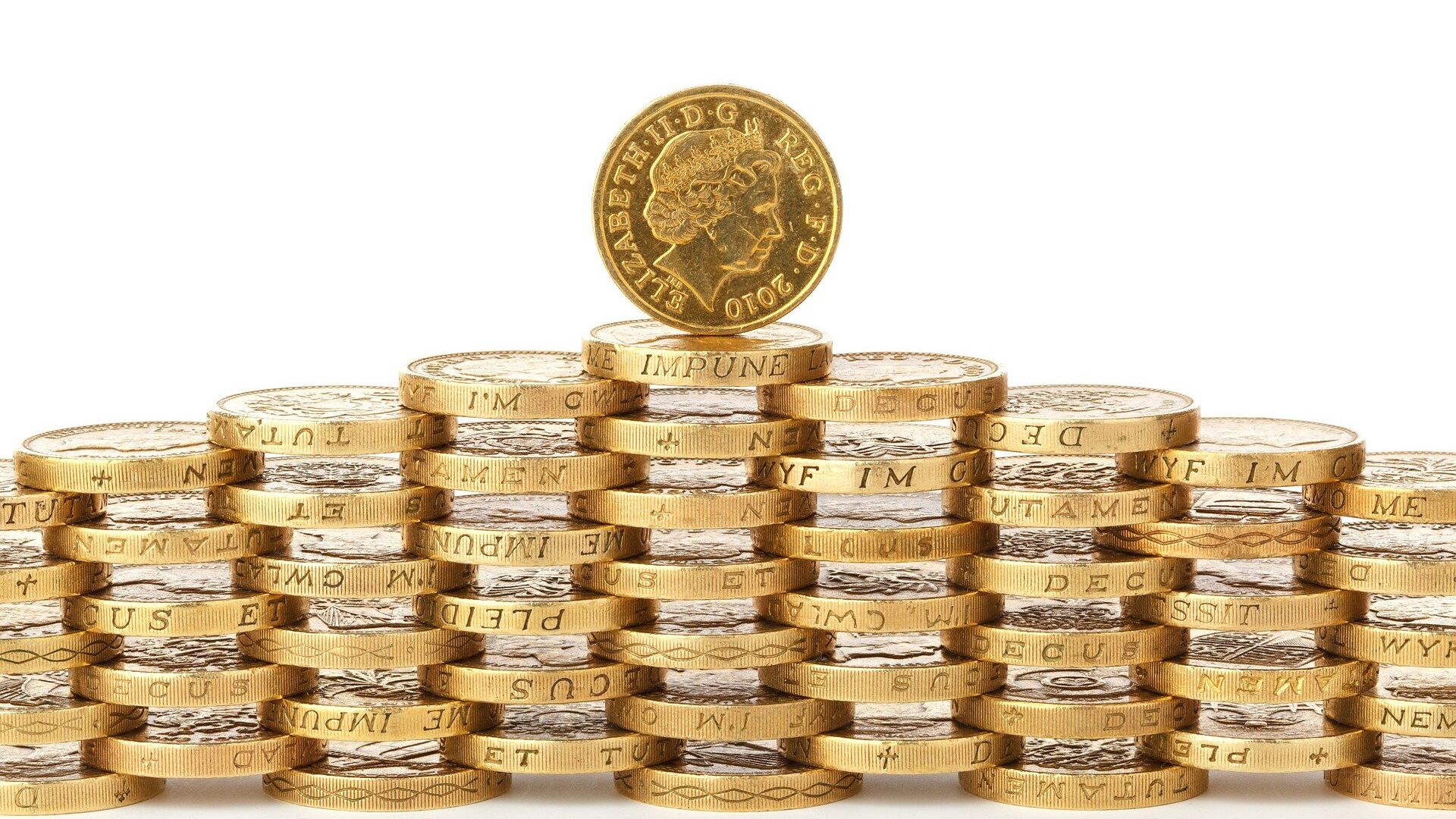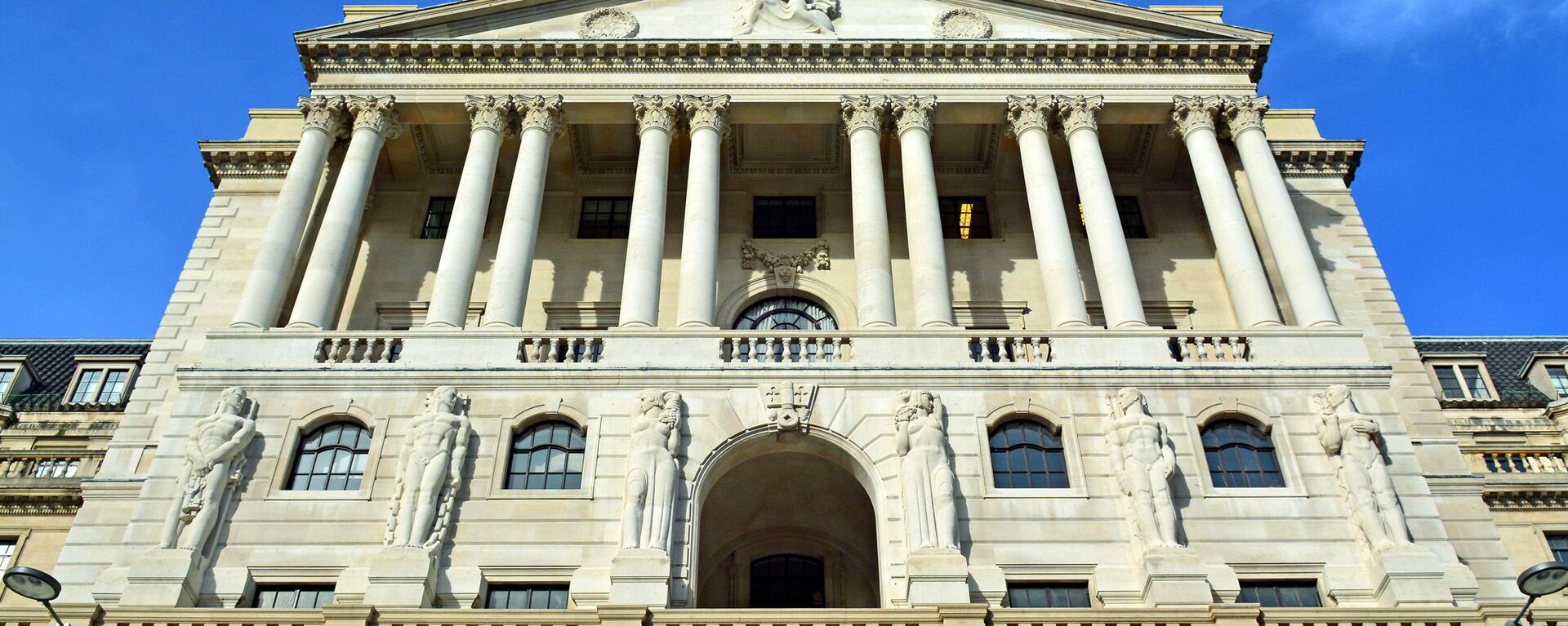https://sputnikglobe.com/20220908/british-pound-sterling-nosedives-to-1985-low-against-dollar-amid-fears-of-uk-recession-1100529322.html
British Pound Sterling Nosedives to 1985 Low Against Dollar Amid Fears of UK Recession
British Pound Sterling Nosedives to 1985 Low Against Dollar Amid Fears of UK Recession
Sputnik International
The British sterling to US dollar exchange rate has been in a strong downward trend in the past few weeks against the backdrop of two-digit inflation, soaring... 08.09.2022, Sputnik International
2022-09-08T07:06+0000
2022-09-08T07:06+0000
2023-05-28T15:21+0000
world
pound sterling
liz truss
bank of england
economy
united kingdom (uk)
https://cdn1.img.sputnikglobe.com/img/104093/62/1040936232_0:100:1921:1180_1920x0_80_0_0_fab3b49395dd1a14b54ccb4da94a7625.jpg
The British pound slid as much as 1 percent in trading on 7 September against the US dollar, to reach $1.1406 at about 14:00 GMT. This is the lowest level since 1985, under the government led by then Prime Minister Margaret Thatcher.The UK currency was also down against the euro, dipping to as low as 1.15 euros, amid mounting concerns about the economy.Economic experts have predicted the British pound may nosedive to as low as $1.05 by the middle of next year.Previously, Sterling briefly slumped to around $1.14 in March 2020 when COVID-19 lockdowns led to shutting down large parts of the economy. Before that, the British currency slid to a 31-year low as a consequence of the Brexit vote in 2016. The level of $1.1407 has not been seen since 1985, when it traded at $1.052 against the greenback on 26 February, according to Refinitiv data.Deutsche Bank foreign exchange strategist Shreyas Gopal has warned of the risks of a “Sterling crisis”.“With the current account deficit already at record levels, Sterling requires large capital inflows supported by improving investor confidence and falling inflation expectations. However, the opposite is happening,” the Deutsche Bank analyst said in a note on 5 September cited by media outlets.Pound ‘Carnage’The economic growth stagnation, combined with a widening trade deficit, have hammered the British pound, prompting Sterling to weaken nearly 15 percent this year.The carnage comes as investors respond to the UK’s worst cost of living crisis in a generation, with inflation hitting 10.1 percent in July. As the costs of energy and doing business rise amid surging two-digit inflation, analysts predicted that the British economy is staring at a steep recession. The UK economy contracted in the second quarter of 2022, with official figures published in August showing that the gross domestic product (GDP) shrank by 0.1 percent quarter-on-quarter.The Bank of England (BoE) has warned that it expects the economy to enter a recession from the fourth quarter of 2022, and inflation is projected to peak above 13 percent in October.The BoE could be forced to raise interest rates when its Monetary Policy Committee (MPC) meets next week, Governor Andrew Bailey warned. The MPC could put up rates by as much as 0.75 percentage points, said Bailey, if the BoE hoped to try to reach its 2 percent inflation rate target.UK debt market concerns have also been fueled by the reported low-tax plans of newly elected UK Prime Minister Truss. The new Tory leader is widely expected to freeze energy bills and boost borrowing.
https://sputnikglobe.com/20220630/bank-of-england-head-uk-to-face-more-inflation-than-other-major-economies-1096830673.html
https://sputnikglobe.com/20220908/liz-truss-to-propose-multibillion-pound-support-plan-to-households--businesses-amid-energy-crunch-1100524283.html
united kingdom (uk)
Sputnik International
feedback@sputniknews.com
+74956456601
MIA „Rossiya Segodnya“
2022
News
en_EN
Sputnik International
feedback@sputniknews.com
+74956456601
MIA „Rossiya Segodnya“
Sputnik International
feedback@sputniknews.com
+74956456601
MIA „Rossiya Segodnya“
pound sterling, liz truss, bank of england, economy, united kingdom (uk)
pound sterling, liz truss, bank of england, economy, united kingdom (uk)
British Pound Sterling Nosedives to 1985 Low Against Dollar Amid Fears of UK Recession
07:06 GMT 08.09.2022 (Updated: 15:21 GMT 28.05.2023) The British sterling to US dollar exchange rate has been in a strong downward trend in the past few weeks against the backdrop of two-digit inflation, soaring energy costs and economic contraction. The Pound has weakened nearly 15 percent this year against the American currency.
The British pound
slid as much as 1 percent in trading on 7 September against the US dollar, to reach $1.1406 at about 14:00 GMT. This is the lowest level since 1985, under the government led by then Prime Minister Margaret Thatcher.
The UK currency was also down against the euro, dipping to as low as 1.15 euros, amid
mounting concerns about the economy.
Economic experts have predicted the British pound may nosedive to as low as $1.05 by the middle of next year.
Previously, Sterling briefly slumped to around $1.14 in March 2020 when COVID-19 lockdowns led to shutting down large parts of the economy. Before that, the British currency slid to a 31-year low as a consequence of the Brexit vote in 2016. The level of $1.1407 has not been seen since 1985, when it traded at $1.052 against the greenback on 26 February, according to Refinitiv data.
Deutsche Bank foreign exchange strategist Shreyas Gopal has warned of the risks of a “Sterling crisis”.
“With the current account deficit already at record levels, Sterling requires large capital inflows supported by improving investor confidence and falling inflation expectations. However, the opposite is happening,” the Deutsche Bank analyst said in a note on 5 September cited by media outlets.
The economic growth stagnation, combined with a widening trade deficit, have hammered the British pound, prompting Sterling to weaken nearly 15 percent this year.
The carnage comes as investors respond to the UK’s worst cost of living crisis in a generation, with inflation hitting 10.1 percent in July. As the costs of energy and doing business rise amid surging two-digit inflation, analysts predicted that the British economy is staring at a steep recession. The UK economy contracted in the second quarter of 2022, with official figures published in August showing that the gross domestic product (GDP) shrank by 0.1 percent quarter-on-quarter.
The Bank of England (BoE) has warned that it expects the economy to enter a recession from the fourth quarter of 2022, and
inflation is projected to peak above 13 percent in October.
The BoE could be forced to raise interest rates when its Monetary Policy Committee (MPC) meets next week, Governor Andrew Bailey warned. The MPC could put up rates by as much as 0.75 percentage points, said Bailey, if the BoE hoped to try to reach its 2 percent inflation rate target.
UK debt market concerns have also been fueled by the reported low-tax
plans of newly elected UK Prime Minister Truss. The new Tory leader is widely expected
to freeze energy bills and boost borrowing.

8 September 2022, 05:33 GMT




